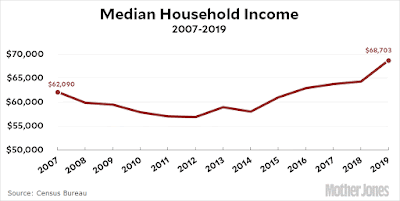Could we possibly need another book about the nation's Trumpian travails and the election of 2020? It seemed unlikely. But Major Garrett, a senior journalist, and David Becker, an elections administrator and scholar, have written an extremely granular account from a slightly off-center perspective that I fully recommend. The Big Truth: Upholding Democracy in the Age of “The Big Lie” recounts the practices, work, and trials of the people who work in administering free and fair elections.
This is the story of the enduring distrust in our election system sown by Trump and exacerbated by our different information systems. A telling anecdote:
Ricky Hatch lives in Weber County, Utah and has been a Republican election official there since 2012. ...
"It happens all the time, the emails and the phone calls, people telling me we have to go back to voting in person, having ID at the polls," Hatch told us. "They tell me we have to get rid of this voting by mail crap, that voting by mail is not secure, that it is fraught with fraud and Democrats use it to take over the world."
Hatch offers tours of the county's vote counting machinery, walks the curious through the process of checking and double-checking results. ...
Hatch has noticed a pattern among those he is able to persuade the Weber County's systems are verifiable and secure. Voters will say they now believe in the county's methods, but not in the election results and the officials who produced them in Arizona, Michigan, Georgia, Wisconsin, or other states contested in 2020.
"They say, 'I trust you." And I tell them there are 9000 other mes, people like me, around the country and they care as much as I do and they are just as competent as I am."
Hatch has commiserated with Republican election officials around the country ... "I hate saying this, but [Trump] has the same characteristics as a cult leader. He pulls people into a belief system. I thought it would die down. It's getting stronger. People are more skeptical now than were a year ago."And Hatch lives and works in Utah where nobody is claiming the 2020 election or any election was "rigged" against Republicans!
The book does a good job of walking the reader through how US elections came to be run through the processes we currently use, how opportunities for fraud had in fact been wrung out out the system over the last couple a decades, and introducing the people who do what has long been largely thankless work.
These authors also communicate something about the information environment of 2020 which made the pervasive Republican belief in Trump's Big Lie more persuasive to its adherents.
I did not understand until reading this book the extent to which white people in the rightwing information bubble -- Fox News, their uncle on Facebook, etc. -- honestly came to assume that the protests over the murder of George Floyd were a personally threatening, murderous anarchy that might engulf their homes. I saw righteous protests against enduring white supremacy; they saw something else.
We are all too familiar with Republican whataboutism surrounding the violence and looting during the nationwide protests ... Initially some protests were violent and accompanied by looting and property damage. At least nineteen people died. Damages exceeded $1 billion. For a time, neighborhoods in Seattle and Portland were, due to unrest, impassable or closed off. Other cities saw blocks of boarded up streets. Even so, with protests in more than 2000 American cities, a report by the nonprofit Armed Conflict Location Event Data Project found that 93 percent were peaceful and non-destructive. ...That's what I saw -- something wonderful if long overdue.
But that's not what Trump's base saw. And we're still living in the backwash of their terror at the rising of the Black and Brown, accompanied by some of their own children.
Garrett and Becker offer honest descriptions of the amazing accomplishments that are the United States' decentralized elections. They admit flaws; they plead against restrictions which might reduce the ability of election officials to smooth the process.
Elections are rife with technicalities and small errors or omissions. Humans are imperfect and elections multiply imperfections -- in using enough ink to fill in a space on a ballot, jotting your signature hurriedly so it many not match precisely with another for verification purposes, misspelling something on a ballot application, miscopying an address on an election form. Election officials and workers have long ironed out such mistakes by helping voters correct innocent mistakes or making sure they can properly submit a provisional ballot ... However, unforgiving application of rules, especially new and restrictive ones, could silence thousands of voters. ...What's their prescription?
Don't blame elections. Win them. That is our message to all who read this book ...That certainly accords with the prescription I've organized my work around. Contrary to my priors, this is a good and useful elections book.





















